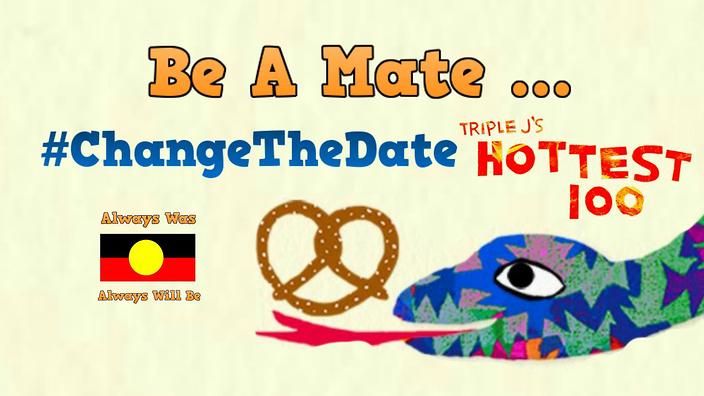Brands should think carefully about their stance on Australia Day
Review Partners' Paul Costantoura argues that jumping on a cause without the solid data to back it up is a bad way to do marketing. Case in point: the #changethedatecampaign.
In the lead up to Australia Day, a lot of claims were made about the apparent groundswell of support among Australians for changing the date. Many of these were made by people who work in media, PR and advertising, based on the exposure the campaign received through social media and in the press.
In Mumbrella the day before Australia Day, Richenda Vermeulen pointed out: “When the banks, telcos, Triple J, and the lamb folks all stop promoting the 26th as Australia day, it’s no longer a fringe movement.”
Her conclusion was: “If your brand isn’t brave enough to be an activist voice tomorrow, I’d recommend you simply go quiet on the 26th.”
The logic sounds right, but anyone who has worked in marketing, PR and advertising knows that when everyone around you agrees with you, it is easy to believe that the rest of the world might think the same way too. But in reality they might not.
To understand the current sentiment, we ran a research study among more than 1,000 Australians (provided by Research Now SSI) over the Australia Day long weekend.
The message for brand advertisers from the results is that support for changing the date among the Australian population might not be as strong or changing as fast as you might think.
The reality is that attitudes have not changed much since 2017, but the gap between those in favour of change and those who prefer the status quo has actually widened in favour of those who oppose change.
We clearly explained to people the case for changing the date (it represents the day when Australia’s original Indigenous peoples were invaded by the British, had their land stolen from them and were slaughtered in their thousands by the early British settlers) and then asked them for their views.
- In 2017, 28% said yes, we should change the date, 53% said no – a gap of 25% between yes and no.
- In 2018, 29% said yes, 58% said no – a gap of 29% in favour of retaining the status quo.
The change is small, but the trend in attitudes is apparently towards opposition to change.
The decision by Triple J to move the date of the Hottest 100 gained only limited traction, particularly among 18 to 24-year-olds with 33% saying it was a good decision. However, only half the population had heard about it (51%) and a total of 17% of the total population thought it was a good idea.

So, what does this mean for brand advertising? Well, if your target audience are people born after 1990, you need to consider your position carefully since more than 40% also said they would support changing the date.
However, if you are targeting other demographics, then you should think more broadly about the importance of the day to the rest of the population and what this might mean for the Australian values you are trying to build into your brand.
Another claim made in the Mumbrella article was: “Companies, agencies, and non-indigenous people are finally joining the vast majority of indigenous voices who do believe we should change the date, and view celebrating Australia Day on the 26th as ‘dancing on graves’.”
We wanted to understand how much traction these ideas were getting among the population, so we tested responses to the ‘dancing on graves’ quote, which was from Karen Mundine of Reconciliation Australia.
Presented with the statement: “We should change the date because holding it on Jan 26 is like asking Indigenous people to dance on the graves of their ancestors.” Just on half disagreed (30% strongly) and 33% agreed (13% strongly). The remaining 16% had no real opinion.
One-third agreement (33%) doesn’t necessarily suggest that it is the best argument to be pushing – particularly if the objective is changing the attitudes of the general population. And let’s face it, the only way that you can achieve political change is to bring voters with you first.
We also asked people how they would feel: “If the Australian Government decided to establish a national ceremony at sunrise on Australia Day to recognise the importance of Indigenous people, their history and culture to Australia.”
The idea was supported by 61% who thought it was a good idea and opposed by only 16%.
The research findings suggest that there might be more progress in gaining the support of the population if there were a stronger focus on celebrating Indigenous Australians, their history and culture as a source of pride for all Australians on Australia Day and throughout the year.

Paul Costantoura is CEO and research director at Review Partners.




Hi Paul, thanks for your contribution to the conversation.
My point wasn’t to suggest that a majority of Australians won’t celebrate Australia Day on the 26th. It’s to flag that there is a growing public debate and that brands should be aware of it. Which is why this year, we saw fewer brands choosing to push Australia Day related messages.
I don’t dispute your survey findings — but I’d echo that likewise, choosing to push marketing messages based on a survey is ( in your words) a “bad way to do marketing”
For example, in 2004, a vast majority of Australians did not support same-sex marriage. Every poll and survey would tell you that the majority of Australians didn’t want it legalised.
Despite those survey result at the time, there’s was little for a brand to gain by hopping into that debate (unless they’re prepared to take a stance as ANZ later did in 2008 by sponsoring the Gay and Lesbian Mardi Gras).
This was the first year in a decade Telstra didn’t wish their customers a “Happy Australia Day”.
Did the majority notice?
And would the minority — who feel passionately about the issue — notice?
I’d suggest this isn’t ‘majority rules’ argument, and major brands are starting to catch on.
User ID not verified.
I trust that brands that turn their backs on Australia Day have plans for trading overseas, because they have no future here.
User ID not verified.